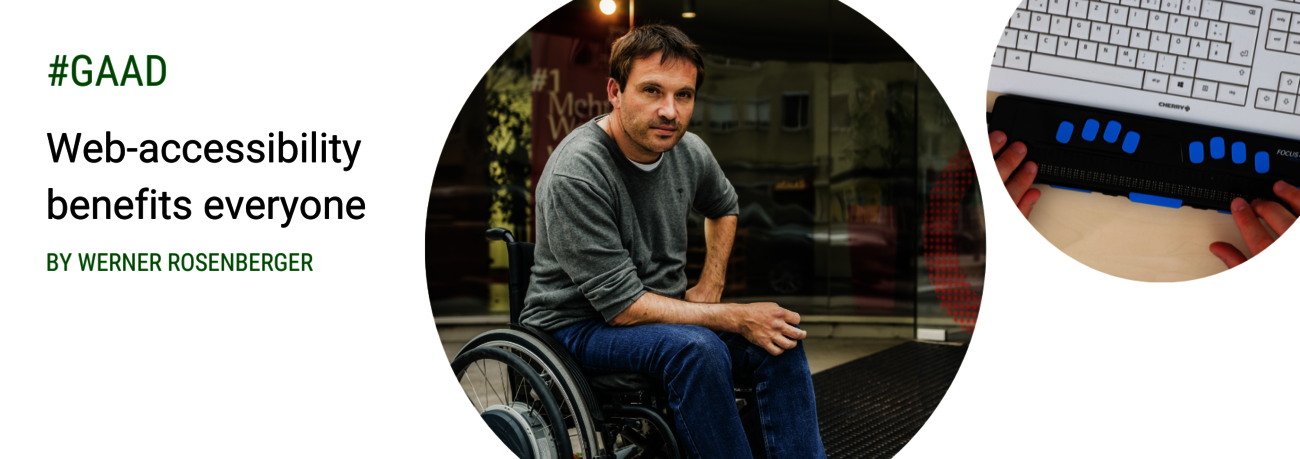The European Accessibility Act
This year will mark the ratification of the “European Accessibility Act” for several EU-countries, with the EU-Directive 2019/882 entering into force as of June 2025. The implementation will vary by country: in Austria, it will be labelled as the “Barrierefreiheitsgesetz BaFG”, which translates to “Accessibility-Bill” and is planned to be addressed in the Austrian Parliament in the next few weeks. The German Parliament already passed the national “Barrierefreiheitsstärkungsgesetz BFSG”, its literal translation being “the Bill to strengthen Accessibility”, last year.
A business case of inclusion
Against this regulatory backdrop, it doesn’t come as a surprise that web-accessibility is increasingly discussed across the private sector: the EU-Directive will affect all businesses that offer digital products or services on the European market.
The European Standard EN 301 549 (Specifications for ICT products and services) will serve as a basis for ATMs, Phones, TV-sets, Online Banking Systems, and general web-based services to become usable and accessible for all people.
For businesses, and particularly those operating online shops, this could pose some considerable challenges. A new professional online shop should now comply with the international Web Content Accessibility Guidelines (WCAG) requirements. However, this means factoring in more time for programming and developing the underlying systems, such as databases or payment services, which will all have to be designed in an accessible way.
Many businesses in Europe are not sufficiently prepared for these developments yet [see e.g. this study from Switzerland]. Shortsighted strategies will eventually result in competitive disadvantages and also financial repercussions once the EU-Directive enters into force.
Inclusive benefits for businesses
Well-prepared businesses will see their investment pay off if the web-accessibility guidelines are implemented correctly. Beyond the regulatory compliance, there is distinct and sustainable economic benefit:
- A larger customer base or target group.
- It’s not just about humans: Machine-learning, which serves as a basis for search engines, voice assistants like Alexa, and other artificial intelligences, rely on accessible online data.
- Improved user experience (UX) and performance, as accessible websites are easier to navigate.
Finally, there is also the reputational advantage of certifying a website through official bodies, such as WACA and TÜV Austria. Adding the web-accessibility certificate on a business’s website will set an example for competitors and other organizations to follow suit.
Where to start?
For businesses that are ready to shift gears towards inclusive and accessible products and services, there is a very simple yet effective first step: Assign ownership of the web-accessibility agenda to a person or team within your business. It will pave the way for important decisions to be made, and expertise to be used or acquired.
By Werner Rosenberger, Certified Web Accessibility Expert at the Austrian Association in Support of the Blind and Visually Impaired and Project Manager for the Web Accessibility Certificate Austria
Photo credits: Werner Rosenberger Portrait, ©Skarwan | Braille keyboard ©Schedl/Hilfsgemeinschaft
Is your organization ahead of the game and ready to showcase your innovative solution for web-accessibility?
The Zero Project is calling for inclusive, innovative, and scalable ICT solutions from the public, private, and civil society sectors to be nominated for a Zero Project Award. The Call for Nominations - #ZeroCall23 – closes on June 19, 2022. More information on:
